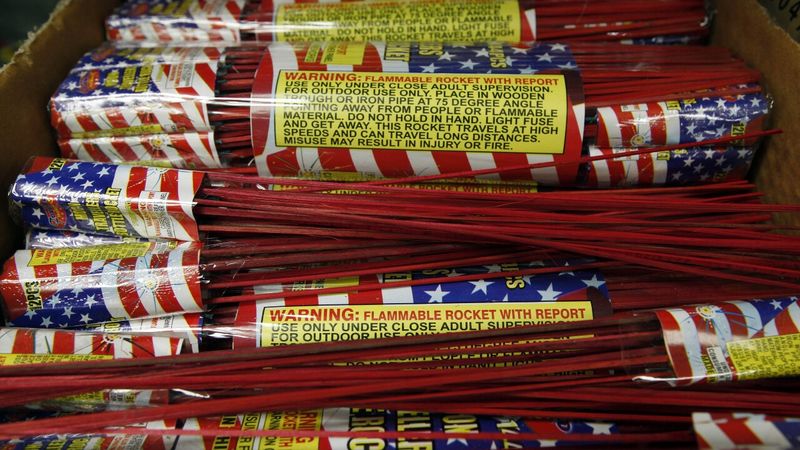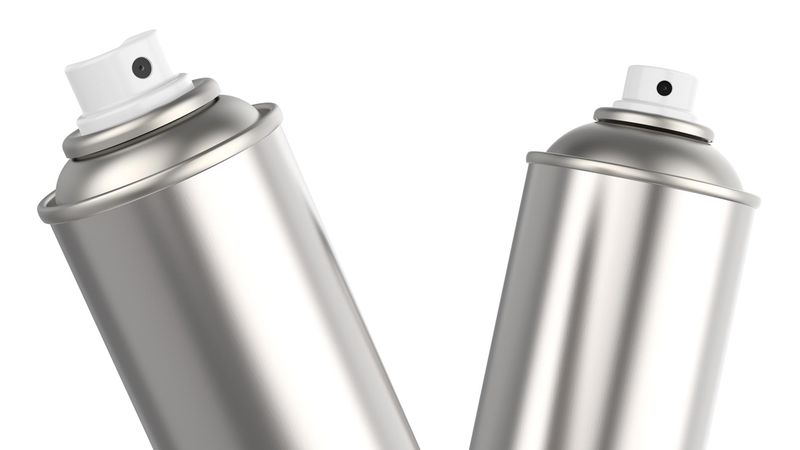While mailing everyday items is routine, certain surprising things are prohibited from being mailed in the U.S. These restrictions are often unknown to the public and are in place to ensure safety, privacy, and legal compliance.
From seemingly innocuous items to more controversial ones, this list highlights 18 surprising things you might not have known are illegal to mail.
Understanding these regulations can prevent unintentional law-breaking and ensure your mailings stay within legal boundaries.
1. Live Scorpions
Live scorpions are fascinating creatures. However, they are illegal to mail in the U.S. due to the risk they pose. Scorpions can cause harm to postal workers and anyone who might come into contact with them if they escape their packaging.
Mailing live animals requires careful handling and specific regulations, and scorpions are no exception. The USPS prohibits mailing live scorpions, even if they are intended for scientific research or pet trading.
Those needing to transport scorpions must seek alternative methods that comply with federal regulations. Ensuring safety and compliance is crucial when dealing with these dangerous creatures.
2. Certain Fireworks
Fireworks can be a spectacular addition to celebrations, but certain types are illegal to mail. The USPS restricts mailing fireworks due to their explosive nature. This includes larger, more powerful fireworks that pose a significant safety risk during transport.
Fireworks are classified as hazardous materials, which makes them unsuitable for standard mail services.
Mailing fireworks can lead to severe penalties, including fines and legal action. Instead, it’s advised to purchase fireworks locally, adhering to state and federal guidelines. This ensures both safety and compliance with the law, preventing potential accidents.
3. Cigarettes
Cigarettes, while widely available in stores, are illegal to send through the mail in the U.S. This restriction aims to prevent unauthorized sales and distribution, especially to minors.
The USPS has strict regulations against mailing tobacco products, including cigarettes. There are limited exceptions, such as certain business transactions, but these are tightly controlled.
Individuals looking to send cigarettes should explore legal alternatives or in-person exchanges. Compliance with these mailing restrictions helps to reduce illegal tobacco sales and protect public health.
4. Knives with Spring Mechanism
Spring-loaded knives, often referred to as switchblades, are illegal to mail across state lines in the U.S. These knives are considered dangerous weapons and are subject to strict regulations.
The USPS prohibits mailing them due to potential risks associated with their use and transport. Those wishing to transport such knives must comply with federal regulations, which often require alternative methods.
Awareness of these restrictions prevents legal issues and promotes public safety. When handling or distributing knives, it’s essential to stay informed about current laws and regulations.
5. Perfumes Containing Alcohol
Perfumes are a popular gift item, but those containing alcohol cannot be mailed due to their flammable nature. Alcohol-based perfumes pose a fire risk during transport, especially by air.
The USPS has regulations that restrict mailing flammable liquids to ensure the safety of all involved. Alternatives include purchasing perfumes locally or using ground shipping services that comply with specific guidelines for hazardous materials.
By understanding and adhering to these rules, individuals can avoid penalties and ensure their gifts reach recipients safely.
6. Credit Cards
Credit cards are essential financial tools, but mailing them poses significant risks. They are illegal to send through standard mail due to potential fraud and identity theft risks. The USPS restricts this to protect personal information and financial security.
Those needing to send a credit card should use secured and insured delivery services. These services offer tracking and verification, ensuring the card reaches its intended recipient safely.
This practice not only abides by legal restrictions but also provides peace of mind for both sender and receiver.
7. Lottery Tickets
Lottery tickets, while a fun and exciting pastime, are prohibited from being mailed across state lines. The USPS restricts mailing lottery materials to prevent illegal gambling activities.
Each state has its own regulations, and mailing tickets can violate these laws. Individuals interested in participating should purchase tickets locally. This approach ensures compliance with both federal and state laws, minimizing legal risks.
Understanding these restrictions helps maintain the integrity of state-run lotteries and prevents potential legal issues.
8. Alcoholic Beverages
Alcoholic beverages, including wine and spirits, are illegal to mail through the USPS. These restrictions aim to prevent underage drinking and unauthorized distribution. Alcohol is considered a flammable liquid, adding another layer of risk during transport.
There are exceptions for certain licensed businesses, but these require strict adherence to regulations. Consumers should seek alternative methods, such as in-person purchases or using licensed delivery services.
Compliance with these rules ensures legal and safe distribution of alcoholic products.
9. Prescription Drugs
Mailing prescription drugs without proper authorization is illegal in the U.S. These restrictions prevent unauthorized distribution, safeguarding public health and safety. The USPS only allows certain licensed entities to mail prescription medications.
Individuals needing to send medications should consult healthcare providers and use approved methods. This ensures compliance with legal requirements and protects both sender and recipient.
Understanding these rules helps prevent drug misuse and maintains the integrity of healthcare systems.
10. Poisonous Snakes
Mailing live poisonous snakes is prohibited due to the obvious risks involved. These creatures pose a significant threat if mishandled or if they escape during transport.
The USPS bans the mailing of dangerous reptiles to ensure the safety of postal workers and the general public. Transporting such snakes requires specialized services that adhere to strict legal guidelines.
It’s crucial for individuals to pursue legal avenues that prioritize safety and compliance. Understanding these regulations helps prevent injuries and potential legal consequences.
11. Aerosol Cans
Aerosol cans are banned from U.S. mail due to their pressurized contents, which pose a risk of explosion or leakage during transport. These items fall under the category of hazardous materials, necessitating special handling.
Individuals should consider local purchases or alternative shipping methods approved for hazardous materials. This practice adheres to USPS regulations, ensuring safety and compliance.
By understanding these restrictions, senders can avoid legal repercussions and contribute to safer mailing practices.
12. Live Plants with Soil
Mailing live plants with soil is illegal, primarily due to agricultural and environmental concerns. Soil can harbor pests and diseases that may spread to new areas, threatening native ecosystems.
The USPS prohibits this to prevent ecological harm and protect agriculture. There are ways to legally transport plants, such as removing the soil or using certified nurseries.
By adhering to these guidelines, individuals can ensure safe plant transport and contribute to biodiversity protection. Awareness of these rules helps maintain ecological balance.
13. Feral Animal Pelts
Mailing feral animal pelts is illegal to prevent the illegal trade of wildlife products. These restrictions protect endangered species and maintain ecological balance. The USPS prohibits mailing pelts without proper documentation and permits.
Those involved in wildlife conservation or education can explore legal avenues for transporting pelts. Compliance with these guidelines supports wildlife protection efforts and prevents illegal trafficking.
It’s essential to prioritize ethical considerations when dealing with wildlife products.
14. Used Mattresses
Used mattresses are illegal to mail due to health and sanitation concerns. They can harbor allergens, pests, and contaminants, posing risks to handlers and recipients. The USPS restricts mailing them to prevent these issues.
Individuals needing to transport a mattress should explore local disposal or donation options. These alternatives ensure safe handling and compliance with regulations.
Understanding these restrictions promotes public health and encourages responsible disposal practices.
15. Obscene Materials
Mailing obscene materials is prohibited by the USPS to uphold public decency standards. This includes explicit content deemed offensive or harmful. The restrictions on mailing these items help protect community standards and comply with federal law.
Individuals and businesses must adhere to content guidelines to avoid legal issues. By understanding these rules, senders can prevent potential penalties and contribute to maintaining societal values.
Compliance with these regulations ensures respectful and lawful communication.
16. Live Birds
Mailing live birds, while allowed under strict regulations, is often restricted due to welfare concerns. The USPS has guidelines for shipping birds, but not all species or circumstances are permitted.
Shipping live animals requires proper handling to ensure their well-being. Individuals interested in transporting birds should consult with licensed services or agencies.
Compliance with these regulations ensures the safety and health of the birds during transit. Awareness of these rules supports ethical treatment and legal compliance in animal transportation.
17. Corrosive Substances
Mailing corrosive substances is illegal due to their hazardous nature. These materials can cause severe damage if leaked or mishandled during transport. The USPS prohibits sending corrosive agents to protect handlers and equipment.
Transporting such substances requires specialized shipping services that adhere to safety regulations. It’s crucial for individuals to explore legal and safe alternatives.
Compliance with these restrictions prevents injuries and ensures public safety during the mailing process.
18. Handguns
Handguns are restricted from being mailed in the U.S. to prevent unauthorized distribution and potential misuse. The USPS has stringent regulations against mailing firearms, except in specific, controlled circumstances.
Licensed dealers and law enforcement agencies may have exceptions, but individuals must adhere to strict guidelines. Compliance with these rules ensures public safety and legal accountability.
Understanding these restrictions helps prevent gun-related incidents and promotes responsible handling.


















